When it comes to replacing missing teeth, choosing the right solution is crucial for maintaining your oral health, functionality, and overall quality of life. Two of the most popular and effective options available today are Dental implant vs. bridge. Each option has its own set of benefits, procedures, and considerations that can significantly impact your dental health and satisfaction with the results.
In this article, we’ll compare between Dental implant vs. bridge to help you determine which is the best fit for your oral health and lifestyle.
Dental implant vs. Bridge: A Detailed Comparison of Durability, Impact, and Costs
Choosing between Dental implant vs. bridge for replacing missing teeth involves understanding their key differences. Dental implants offer a durable, natural-looking solution by embedding a titanium post into the jawbone, preserving bone health and not affecting neighboring teeth. In contrast, dental bridges are quicker and less invasive but require altering adjacent teeth and do not address bone loss.
This guide will help you weigh the durability and impact on surrounding teeth of each option to find the best fit for your needs.
Dental implant vs. Bridge: Which Offers Greater Durability for Long-Term Use?
Dental Implants:
Lifespan: Dental implants are known for their long-lasting durability. With proper care and maintenance, they can last 15 to 25 years or more. The titanium post integrates with the jawbone, providing a stable and permanent foundation for the crown.
Maintenance: Regular dental check-ups and good oral hygiene practices are crucial to ensure the longevity of implants. While the implant itself can last a lifetime, the crown may need replacement or repair over time due to wear and tear.
Dental Bridges:
Lifespan: Bridges typically last between 5 to 15 years, depending on factors such as material quality, oral hygiene, and the condition of the supporting teeth. The lifespan can be shorter if the supporting teeth develop issues.
Maintenance: Bridges require regular maintenance and cleaning to prevent plaque buildup and potential decay of the supporting teeth. Proper care can extend their lifespan, but they may need replacement or adjustment sooner than implants.
Dental Implants vs. Bridges: How Each Option Affects Adjacent Teeth
Dental Implants:
Effect: Implants do not affect the adjacent teeth. They are placed directly into the jawbone, so the neighboring teeth remain intact and unaltered. This is a significant advantage for preserving the health and structure of the adjacent teeth.
Considerations: Implants are a good option for individuals who want to avoid altering their healthy teeth.
Dental Bridges:
Effect: To place a bridge, the adjacent teeth (abutment teeth) must be prepared by removing some of their enamel to accommodate the crowns that will anchor the bridge. This alteration can potentially weaken the adjacent teeth and make them more susceptible to decay or damage.
Considerations: Over time, the supporting teeth may require additional dental work or may become vulnerable to issues due to the stress placed on them by the bridge.
This detailed comparison provides a clearer understanding of how Dental implant vs. bridge differ in terms of durability and impact on adjacent teeth. This information can help patients make a more informed decision based on their individual needs and preferences.
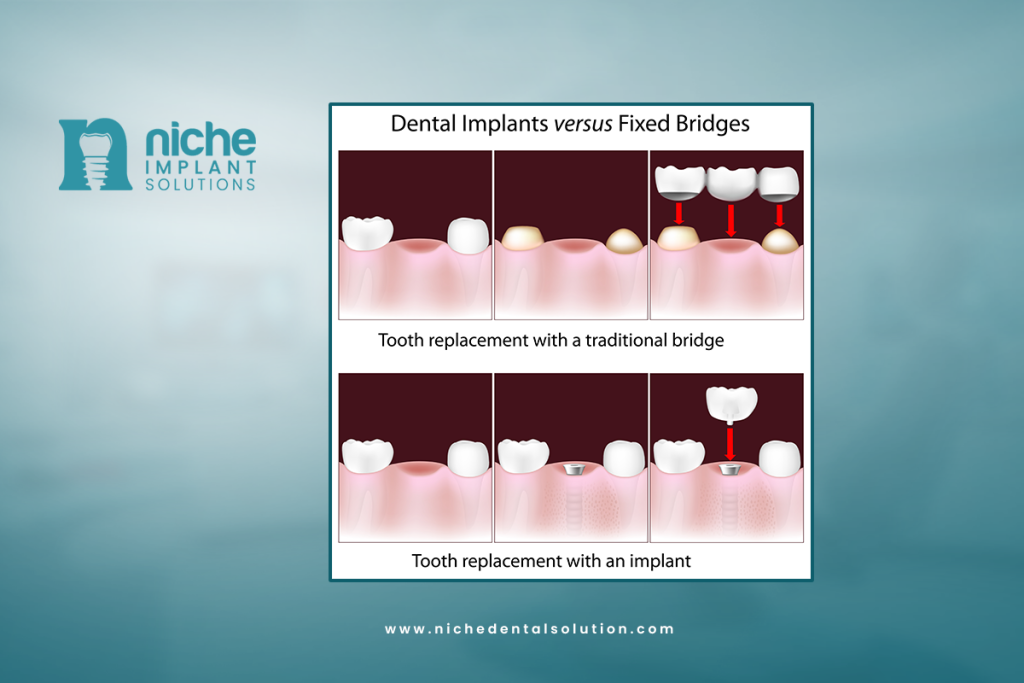
Cost Analysis: Dental implant vs. Bridge – Which Offers Better Financial Value?
When deciding between Dental implant vs. bridge for replacing missing teeth, one of the most significant factors to consider is cost. Understanding the initial and long-term financial implications of each option can help you make an informed choice that aligns with your budget and dental needs.
Initial Cost
Dental Implants:
- Upfront Expense: Dental implants generally come with a higher initial cost compared to bridges. The total expense includes several components:
- Surgical Procedure: Involves a minor surgical procedure to place the titanium post into the jawbone.
- Implant Fixture: The titanium post itself.
- Abutment: A connector piece that sits on top of the implant.
- Crown: The custom-made artificial tooth that is attached to the abutment.
- Typical Range: Depending on the location and complexity of the procedure, dental implants can range from $3,000 to $4,500 per tooth.
Dental Bridges:
- Upfront Expense: Bridges usually have a lower initial cost. The overall expense covers:
- Preparation of Adjacent Teeth: Includes the cost of reshaping the adjacent teeth or implants to support the bridge.
- Bridge Itself: The prosthetic device that replaces the missing tooth.
- Follow-Up Care: Additional costs for fitting and adjusting the bridge.
- Typical Range: The cost for a traditional bridge typically ranges from $2,000 to $3,500 for a three-unit bridge.
Financial Considerations
- Insurance: Some dental insurance plans may cover a portion of the cost for both implants and bridges, but coverage varies. It’s essential to check with your insurance provider to understand your benefits and out-of-pocket expenses.
- Financing Options: Many dental practices offer financing plans or payment options to help manage the cost of both implants and bridges. Exploring these options can make the expense more manageable.
Choosing between Dental implant vs. bridge involves weighing the initial cost against long-term value. While dental implants typically require a higher upfront investment, their durability and minimal need for replacements can make them a more cost-effective choice over time. Bridges, while less expensive initially, may incur higher costs in the long run due to their shorter lifespan and the need for maintenance of the adjacent teeth.
Dental implant vs. Bridge: Bone Health and Preservation
When it comes to replacing missing teeth, both Dental implant vs. bridge offer effective solutions. However, they have distinct impacts on bone health and preservation. Understanding these differences between Dental implant vs. bridge can help you make an informed decision that supports your long-term oral health.
Also read: Revolutionising Healthcare: How Biocompatible metals Are Shaping the Future of Medical Implants?
Dental Implants and Bone Preservation
Dental Implants are widely recognized for their role in preserving jawbone health. Here’s how they work:
Bone Integration: Implants consist of a titanium post that is surgically placed into the jawbone. This post serves as a replacement for the tooth root. The process of osseointegration occurs as the bone grows around the titanium post, securing it firmly in place. This integration stimulates the bone similarly to natural tooth roots, which helps maintain bone density and prevents bone loss.
Bone Preservation: By mimicking the function of natural tooth roots, dental implants help preserve the bone structure of the jaw. This is crucial because the bone can deteriorate over time when a tooth is missing, leading to changes in the jaw’s shape and affecting the alignment of adjacent teeth.
Considerations: While implants offer significant benefits for bone preservation, they may not be suitable for everyone. Individuals with severe bone loss may require additional procedures such as bone grafting before implants can be placed. This preparation can add to the overall cost and complexity of the treatment.
Dental Bridges and Bone Health
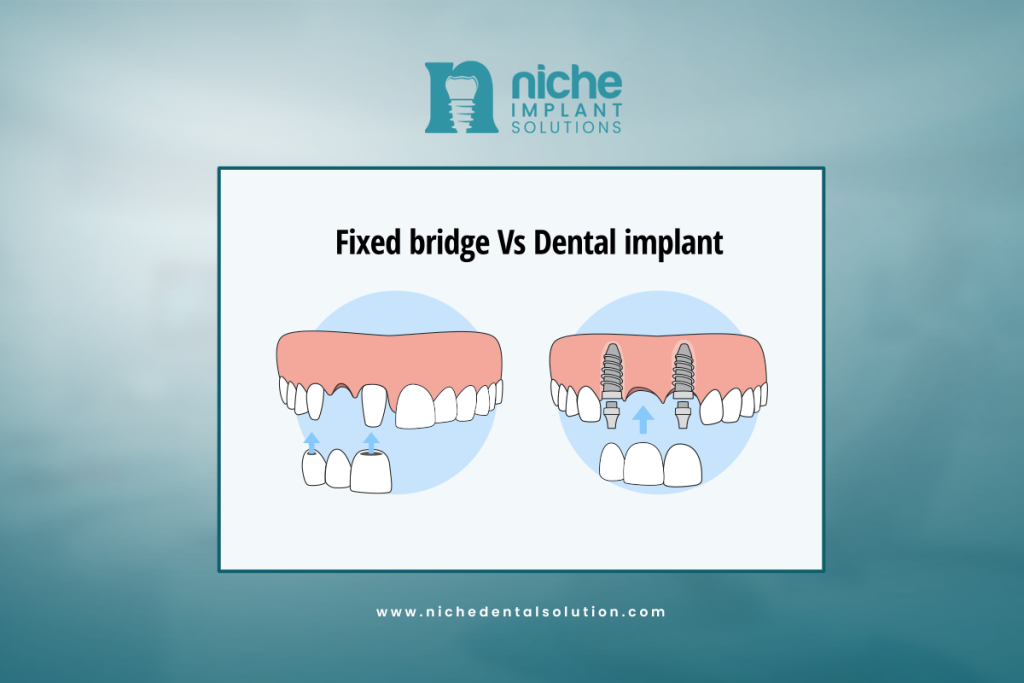
Dental Bridges are another popular method for replacing missing teeth, but they have a different impact on bone health:
Bone Health: Unlike implants, bridges do not interact with the jawbone. A bridge is a prosthetic device supported by adjacent teeth or implants, and it sits on top of the gum line. Because bridges do not stimulate the jawbone, they do not prevent bone loss in the area where the tooth is missing.
Bone Loss: Over time, the absence of stimulation from natural tooth roots or implants can lead to bone resorption in the area of the missing tooth. This bone loss can alter the shape of the jaw and may affect the fit of the bridge, leading to potential complications with the surrounding teeth.
Considerations: While bridges can effectively restore function and appearance, they do not address the issue of bone preservation. If maintaining jawbone density is a priority, other options such as implants might be more suitable.
Dental implants are superior to dental bridges when it comes to bone health and preservation. Implants stimulate the jawbone and help prevent bone loss, maintaining the structure of the jaw. On the other hand, bridges do not address bone preservation and may lead to bone deterioration over time.
When deciding between Dental implant vs. Bridge, consider your bone health, treatment goals, and long-term benefits. Consulting with your dentist can provide personalized advice based on your specific needs and help you choose the most suitable option for maintaining optimal oral health
Why Niche Dental Solutions is Your Top Choice for Dental implant vs. Bridge
When selecting between Dental implant vs. bridge, Niche Dental Solutions excels as a premier provider. Here’s why:
- Expertise: Their team specializes in both implants and bridges, using cutting-edge technology for precise results.
- Personalized Care: They offer tailored treatment plans based on detailed assessments and patient preferences.
- Advanced Technology: They utilize state-of-the-art tools for accurate implant placement and durable bridge fabrication.
- Quality and Safety: Committed to high standards, they use premium materials and follow strict safety protocols.
- Exceptional Service: From consultation to follow-up, they provide comprehensive support and care.
Niche Dental Solutions ensures optimal outcomes with their expertise, advanced techniques, and dedication to patient satisfaction.
Ready to transform your smile? Contact Niche Dental Solutions today for a consultation and discover how their advanced dental implants and bridges can enhance your oral health and confidence. Call us at [+201011687002] to schedule your appointment.

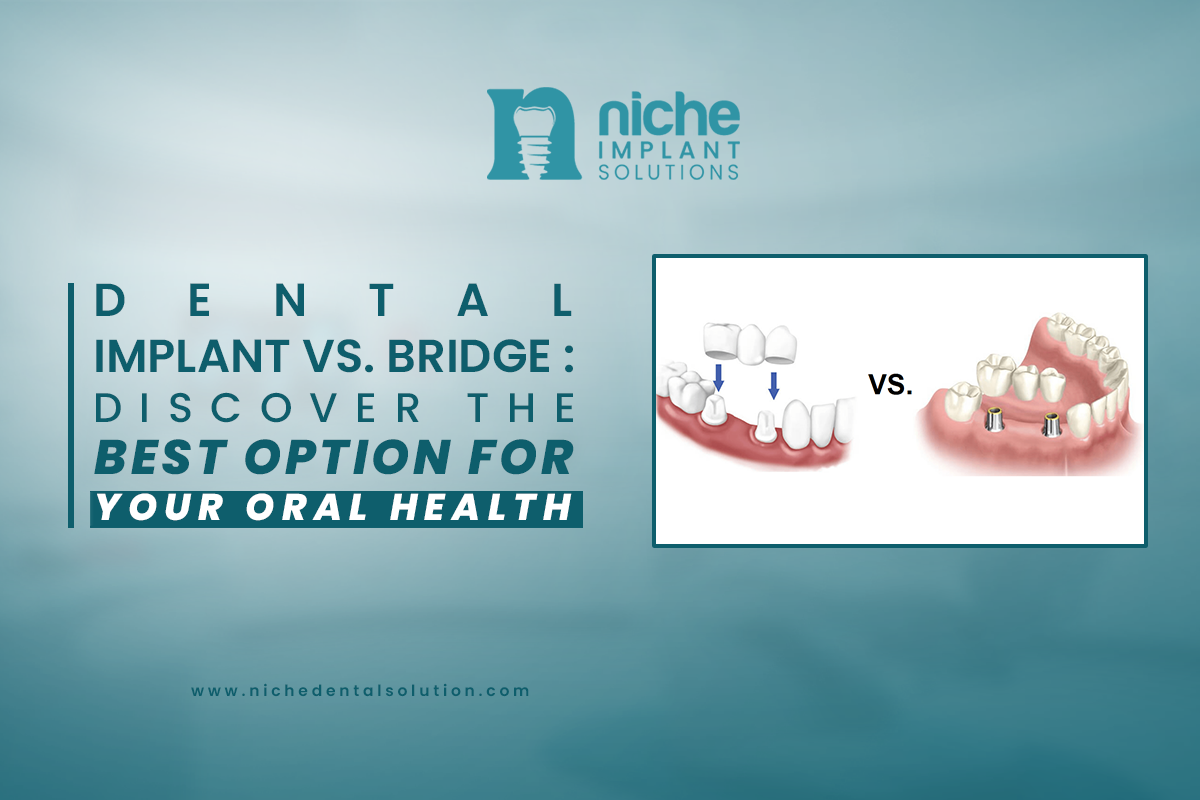
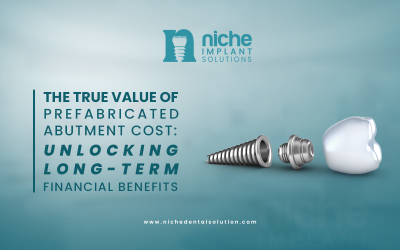
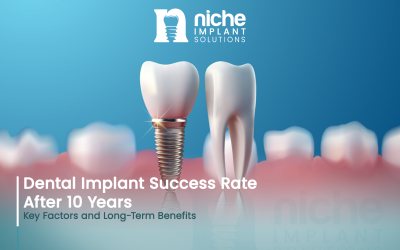
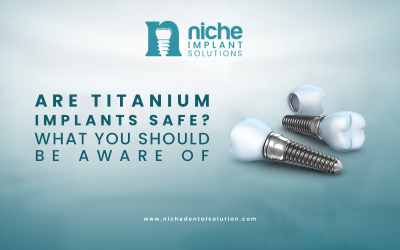
0 Comments